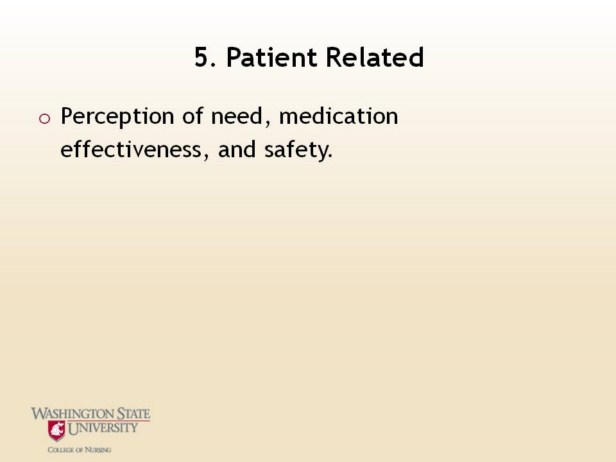 |
Perception of need, medication effectiveness, and safety are all important
patient-related factors for medication adherence. As patients decide to
fill their prescription, they take into account the necessity of treatment
and the seriousness of their disease.15
Explaining the importance of the medication and how it will work to provide
therapeutic benefit will facilitate adherence. In addition, informing the
patient/family of potential common side effects and what signs and symptoms
to report will increase their sense of control and participation in the
medication management process.21
Instructing the patients on the need to follow-up with prescribing
providers, and facilitating securing such appointments, after initial
treatment with new medications is important for establishing the
effectiveness and safety of new medications and promotes medication
adherence through several mechanisms.7
|
